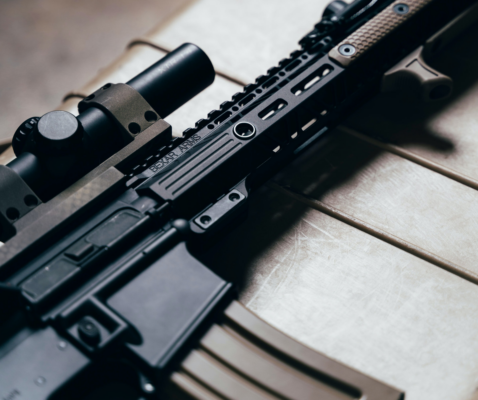Some in the media are starting to openly admit that repealing or altering the Second Amendment is a necessary first step towards allowing the government to exert more control over who can keep and bear what arms in which venues.
But note that there are currently two Second Amendments.
The First Second Amendment is from the written Constitution, which is at this point merely a historical document, having no legal significance:
A well regulated Militia, being necessary to the security of a free State, the right of the people to keep and bear Arms, shall not be infringed.
The Second Second Amendment is from the oral Constitution, which is the one accepted by pretty much everyone:
That part of the right to keep and bear arms that is implicit in the concept of ordered liberty shall not be infringed unless there is a compelling government interest in doing so.
In simpler language, the Second Second Amendment says that it’s up to the Supreme Court to tell you what you can own, what hoops you have to jump through to buy or sell it, whether you have to register it, how you have to store it, where you can carry it, and so on.
For example, the Court might decide that banning suppressors is an infringement, but taxing them isn’t. It might decide that forbidding you from keeping a loaded gun in your home is an infringement, but forbidding you from taking that gun outside of your home is not. It might decide that prohibiting the possession of three 10-round magazines is an infringement, but prohibiting the possession of two 15-round magazines is not. And so on.
Governments at all levels — federal, state, and local — just have to guess what the Supreme Court is thinking. And the only way to find out is to play an elaborate game of Battleship, by passing laws that might cross one of its imaginary lines, and seeing how the Court responds.
Anyway, now that the need for some kind of alteration is being acknowledged, I’m going to try to get the ball rolling by proposing wording for a Third Second Amendment, which addresses the stated concerns of both sides of the issue. On the left, that’s reducing gun-related crime. On the right, that’s maintaining the core purpose of the original amendment: self-defense, not just from criminals, but from our own government.
So here’s the proposed wording of the Third Second Amendment:
I. Any person of voting age who has not been convicted of a violent felony, or adjudicated by a panel of at least three judges in open court to be dangerous to members of the public, has a right to own any weapons that may suitable for self-defense against criminals or against his own government, and a right to carry them wherever he goes.
II. The exercise of these rights shall not be subject to bans or other limits, licenses or permits, taxes or fees, registration or other tracking requirements, background checks, storage or inspection requirements, or any other infringements, even if there would be a compelling government interest in enacting them, and even if those infringements are currently in force.
So there you go. I think this contains something for everyone! Highlights:
- The whole militia issue — which has been one of the biggest red herrings in all of politics — is eliminated.
- This clarifies that the right to keep and bear arms belongs to individual persons, and not only to ‘the people’ considered as a group.
- The scope of ‘the people’ has been reduced to exclude children, and other people that ‘should not’ be able to own guns, without excluding people who have, for example, been convicted of non-violent felonies, or people who have merely been accused of being dangerous. (Note that this would eliminate Red Flag laws, while still leaving open the possibility of Purple Flag laws.)
- The scope of ‘arms’ has been clarified, to cut off the line of argument that ‘weapons of war’ should be subject to control by the very entity against whom those weapons might have to be used, in a war.
- The idea that things like bans or taxes or registration requirements are somehow not ‘infringements’ is discarded, along with the idea that a ‘compelling government interest’ somehow takes precedence over a ‘right’ — which is, at its core, the ability to tell the government to pound sand.
- It effectively repeals pretty much every existing gun control law, including the National Firearms Act of 1934, the Federal Firearms Act of 1938, and the Gun Control Act of 1968.
- Since the wording of the Third Second Amendment has little overlap with the wording of the First or Second Second Amendments, any rulings that the Court has made so far (for example, grandfathering ‘long-standing restrictions’ by state and local governments) would be irrelevant. This would be a complete do-over.
I’m sure there will be disagreements, but as I said, I’m just trying to get the ball rolling here.
